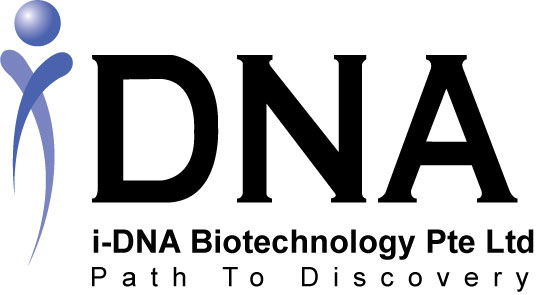What we can do
Protein Profiling Service For Transcriptional Factors
Services
- Antibody Purification Service
- Bacteria E.codiv Competent Cell Preparation
- Custom Peptide Synthesis
- Custom-Made Monoclonal Antibody
- Rabbit Polyclonal Antisera Against PEPTIDE
- Rabbit Polyclonal Antisera Against PROTEIN
- DNA Paternity Testing
- DNA Purification
- ELISA
- Gene Synthesis
- Comprehensive Health Monitoring For Rat & Mouse
- Infectious Disease PCR Testing For Rat & Mouse
- Mouse and Rat Serology Testing by MFIA
- Custom Animal Serum, Whole Blood and Plasma
- Preparation of Custom Buffers and Solutions
- Protein Profiling Service for Cytokines
- Disease-Specific Protein Profiling Service
- Protein Profiling Service For Transcriptional Factors
- GST-or His Taq Protein Purification Service
- RNA Gene Expression For Multiplex
- RNA Gene Expression For Single Plex
- Site-Directed Mutagenesis
- SNP and Genotyping
- Subcloning
WHAT WE CAN DO
i-DNA offers protein profiling service for 85 common transcriptional factors starting from cell or tissue.
- Species that can recognize are human, mouse and rat
- Require as little as 500 ng for whole cell lysate or 250 ng for nuclear extract
- Quantitate TF binding activity
- Cost effective based on per data point
- Fast turnaround within 24 hour
Protein profiling uses xMAP technology to quantify multiple target proteins simultaneously in the same sample, same well.
Transcription factors (TFs), which play crucial roles in the regulation of gene expression in the human genome, are highly regulated by a variety of mechanisms. A single extracellular stimulus can trigger multiple signaling pathways, and these in turn can activate multiple TFs to mediate the inducible expression of target genes. Alterations in the activities of TFs are often associated with human diseases, such as altered activating factor 1, estrogen receptor, and p53 function in cancer, nuclear factor kB in inflammatory diseases, and peroxisome proliferator-activated receptor gamma in obesity. A systematic assay for profiling the activation of TFs will aid in elucidating the mechanisms of TF activation, reveal altered TFs associated with human diseases, and aid in developing assays for drug discovery.
Please contact us for a no-obligation consultation. All information provided will be kept strictly confidential.
The 85 TFs are divided into 2 panels:
Panel 1
|
RUNX/AML
|
ELK1
|
ISRE
|
OCT
|
|
API
|
ER
|
MEF-2
|
P53
|
|
AP2
|
ETS/PEA
|
MYOD
|
PAX3
|
|
AR
|
FAST1
|
NF-1
|
PAX5
|
|
ATF2
|
FKHR-1
|
NFAT
|
PPAR
|
|
BRN3
|
GATA-1
|
NF-E1(YY1)
|
SMAD
|
|
CEBP
|
GR/PR
|
NF-E2
|
STAT1
|
|
C-MYB
|
HIF-1
|
NFkB1
|
STAT3
|
|
CREB
|
HNF-1
|
NKX-2.5
|
STAT4
|
|
E2F1
|
IRF
|
NF-Y
|
STAT5
|
|
TFIID
|
Panel 2
|
EV-1
|
GAG
|
IKAROS
|
HBS/XBP
|
|
HAS+HBS
|
ALF-1/TAL-1
|
TREF-1/2
|
EGR
|
|
NFkB
|
c-MYC
|
Neuro-D1
|
PDX-1
|
|
TR
|
MRE
|
ELF-1
|
SRE
|
|
H4TF
|
HiNF
|
KPF-1
|
LF-A1
|
|
LvF
|
MTF
|
PUR-1
|
RB
|
|
TEF-3
|
AP-1
|
USF-1
|
XRE
|
|
GFI-1
|
NPAS2
|
PIT-1
|
SRY
|
|
E47
|
CCAAT
|
AP-4
|
CDP
|
|
XBP-1
|
CEF-1
|
ANTI-RE
|
COUP-TF
|
|
SIE
|
HSF
|
TR (DR-4)
|
TFIID
|
